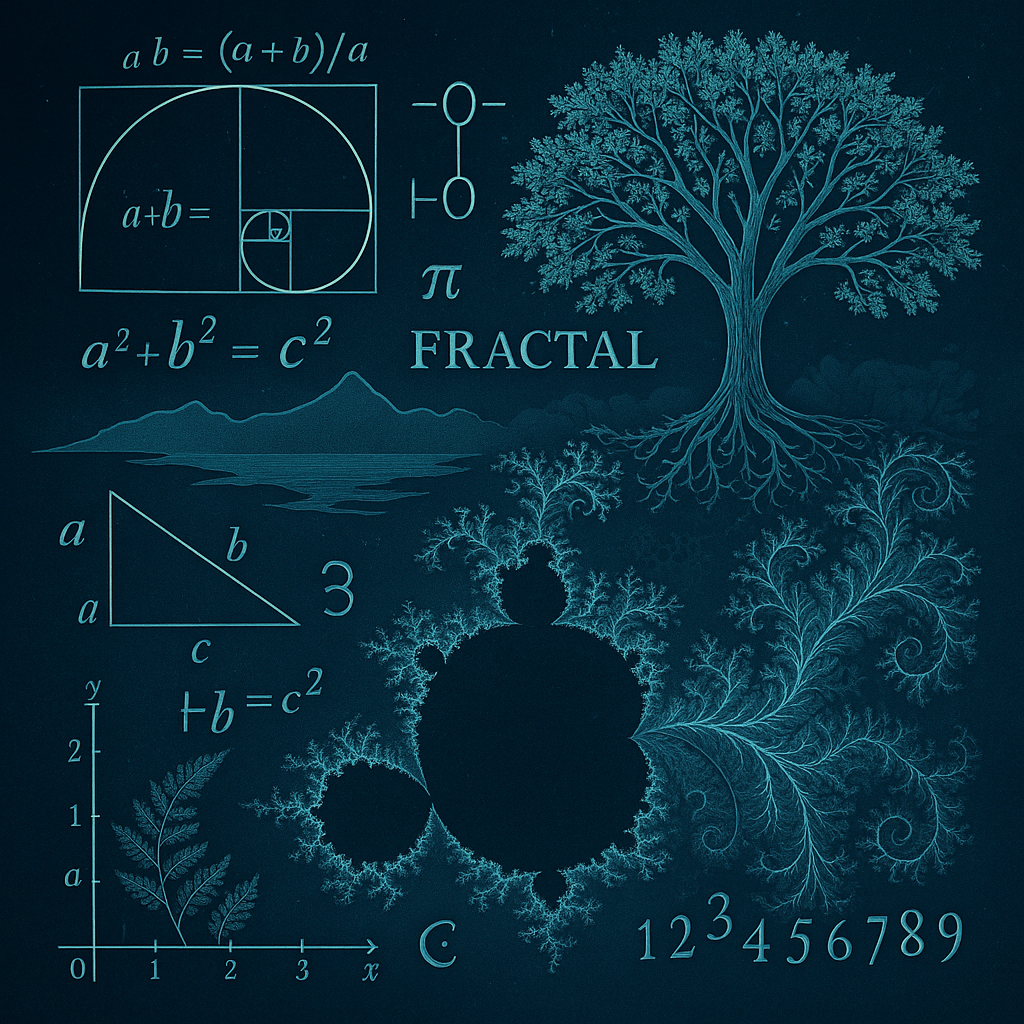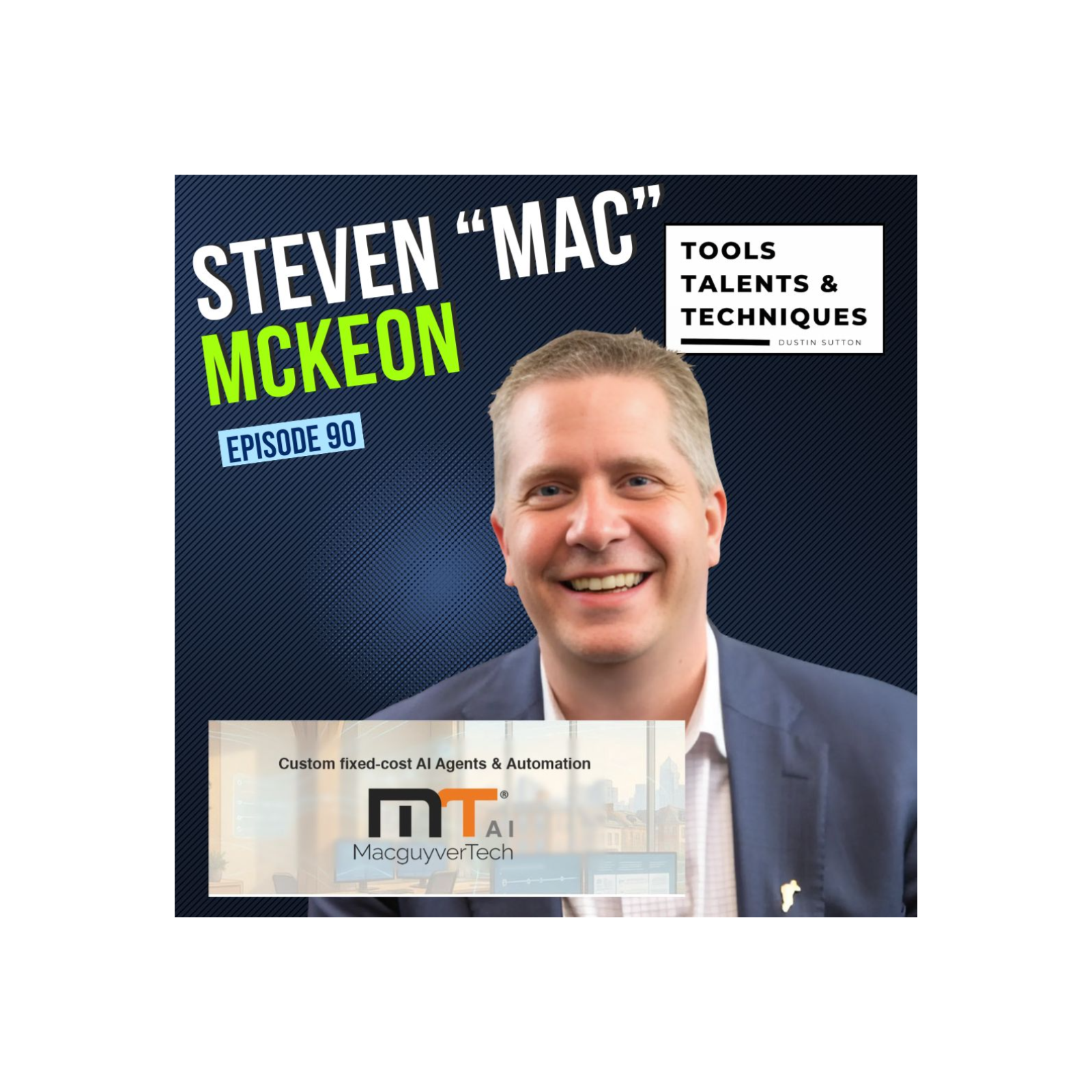Quantum Truths, Fractals in Nature, and Ancient Math: Why It All Matters Today

I have always been fascinated by ideas that seem a little “out there” like quantum computing, fractals, and ancient math. They sound like topics for physicists or philosophers, not something that would touch my work in commercial real estate or business development. But the more I explore them, the more I see how they are woven into everything around us.
That is why I really enjoyed my recent conversation with Steven “Mac” McKeon on Tools, Talents & Techniques. We started talking about AI and cybersecurity, then somehow ended up unpacking quantum mechanics, fractals in nature, and lessons from ancient civilizations. It turned into one of those wide-ranging conversations that sticks with you because you realize these ideas are not abstract. They are connected to the way we live, work, and innovate.
You can listen to the full conversation on Tools, Talents & Techniques: AI Failures, Cybersecurity, Quantum Truth & Music Flow | Steven “Mac” McKeon (Ep. 90). Now, let's dive in!
Quantum Computing: More Than Sci-Fi
Quantum computing is not just about faster computers. It is about a completely different way of thinking. Instead of being locked into ones and zeros, quantum computers use qubits, which can exist in multiple states at once. That is how they can solve problems classical computers would take centuries to figure out.
This matters because quantum will impact everything from medicine to finance to data security. Even if you are not building quantum computers, the ripple effect of this technology will touch every industry including ours.
Fractals: Patterns We Already Live With
Fractals may sound like a math class flashback, but they are everywhere in our daily lives. Trees, coastlines, snowflakes, even the way our lungs and blood vessels branch out. They are all fractals.
The amazing thing is that fractals also show up in business and human behavior. Think about patterns in markets, the way networks grow, or even how ideas spread online. These repeating, self-similar structures are nature’s blueprint and they remind us that complexity often grows out of something simple.
Ancient Math: Old Lessons, Modern Impact
We often think of ancient civilizations as primitive compared to us. But when you look at their math, you realize how much of what we rely on today is built on their work.
The Greeks gave us geometry. The Babylonians gave us algebra and time measurement. Indian mathematicians gave us zero and the decimal system. Without them, there would be no quantum computing, no fractal analysis, and no modern science.
It is a reminder that progress is not about reinventing the wheel. It is about building on the wisdom that came before us.
How It All Connects
At first glance, quantum computing, fractals, and ancient math could not be more different. But the threads tie together:
Quantum systems sometimes display fractal-like patterns.
Fractals rely on iteration and recursion, which are also at the heart of quantum algorithms.
Ancient math gave us the foundation to even recognize these patterns and develop today’s tools.
Mac put it well. These fields show us that reality is far more interconnected and elegant than it first appears.
Steven "Mac" McKeon's Insights: A Multifaceted Perspective
Steven "Mac" McKeon brings a unique and multifaceted perspective to the discussion of quantum computing, fractals, and ancient mathematics. As an ethical hacker, AI innovator, and musician, Mac sees the interconnectedness of these fields in a way that few others do. He emphasizes the importance of curiosity, creativity, and a willingness to explore the unknown in order to unlock new insights and innovations.
Mac's expertise in AI and cybersecurity provides him with a unique perspective on the potential applications of quantum computing. He understands the importance of developing quantum-resistant cryptography to protect sensitive information from being compromised by quantum computers. He also sees the potential for quantum computing to revolutionize AI, allowing for the development of more powerful and intelligent AI systems.
Mac's background in music and mathematics informs his understanding of fractals. He sees the connection between fractal patterns and musical harmony, and he believes that fractals can be used to create more beautiful and engaging art and music. He also emphasizes the importance of understanding the mathematical principles that underlie both fractals and music in order to create truly innovative works.
Mac's insights highlight the importance of interdisciplinary thinking and collaboration in order to address the complex challenges facing humanity. By bringing together experts from different fields, we can unlock new possibilities for technological innovation and scientific discovery.
The Broader Context: AI, Cybersecurity, and Innovation
The discussion of quantum computing, fractals, and ancient mathematics is situated within a broader context of AI, cybersecurity, and innovation. These fields are all interconnected and influence one another. AI is rapidly transforming industries and societies, but it also presents new challenges for cybersecurity. Quantum computing promises to revolutionize both AI and cybersecurity, but it also raises new ethical and societal concerns.
Innovation is essential for addressing these challenges and harnessing the potential of these technologies. By fostering a culture of curiosity, creativity, and collaboration, we can unlock new possibilities for technological innovation and scientific discovery. This includes supporting research in quantum computing, AI, cybersecurity, and related fields, as well as promoting education and training in these areas.
It's also important to address the ethical and societal implications of these technologies. This includes developing guidelines for the responsible development and deployment of AI, as well as ensuring that quantum computing is used for the benefit of humanity. By addressing these challenges proactively, we can ensure that these technologies are used to create a more just and equitable world.
Embracing Curiosity and Unlocking Truth
What I loved about this conversation with Mac is that it reminded me: curiosity pays dividends. The universe is full of patterns and truths waiting to be uncovered. Some come from cutting-edge tech, some from nature, and some from civilizations long before us.
By understanding the underlying mathematical principles that govern these phenomena, we can gain deeper insights into the nature of reality and unlock new possibilities for technological innovation. This journey underscores the importance of curiosity, creativity, and a willingness to explore the unknown. As Steven "Mac" McKeon emphasized in our discussion, these qualities are essential for driving innovation and unlocking truth in both business and life.
We encourage you to continue exploring these fascinating topics and to embrace the spirit of inquiry that has driven scientific discovery for centuries. The universe is full of mysteries waiting to be unraveled.
Be sure to listen to the full episode featuring Steven "Mac" McKeon on Tools, Talents & Techniques: AI Failures, Cybersecurity, Quantum Truth & Music Flow | Steven “Mac” McKeon (Ep. 90) for even more insights into these captivating subjects.






